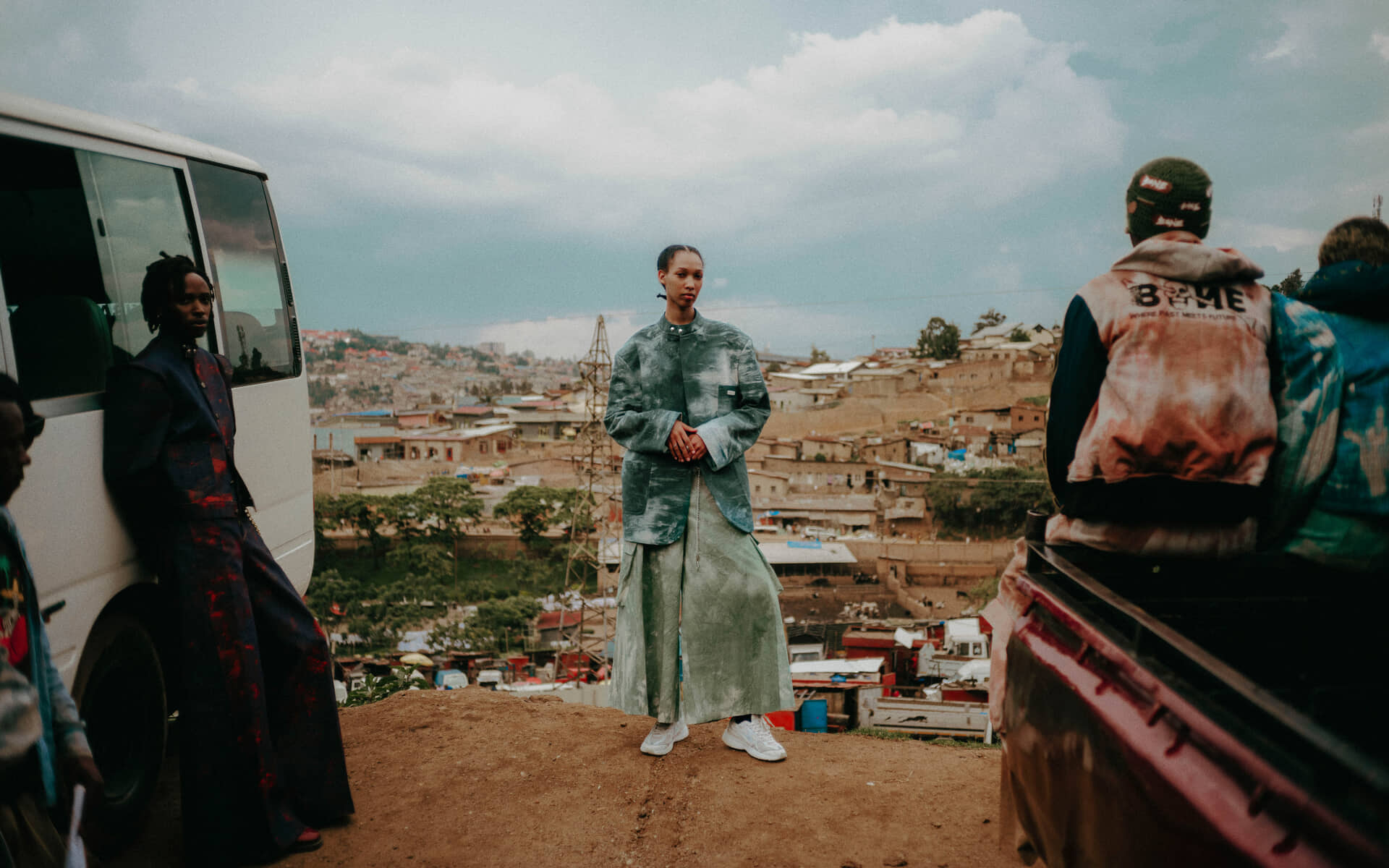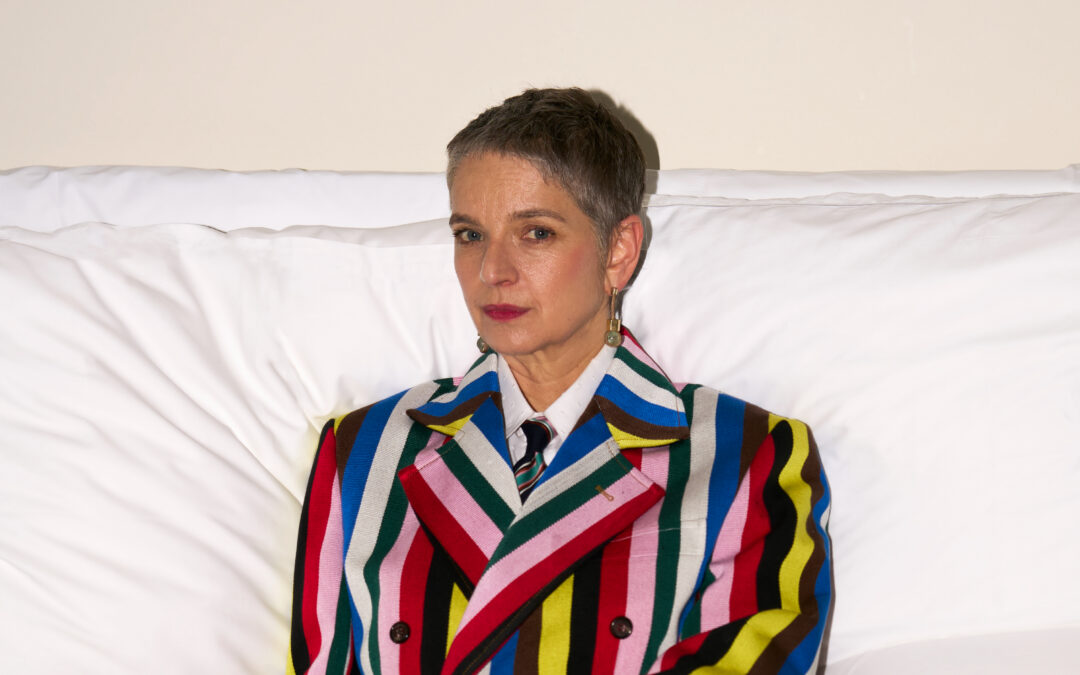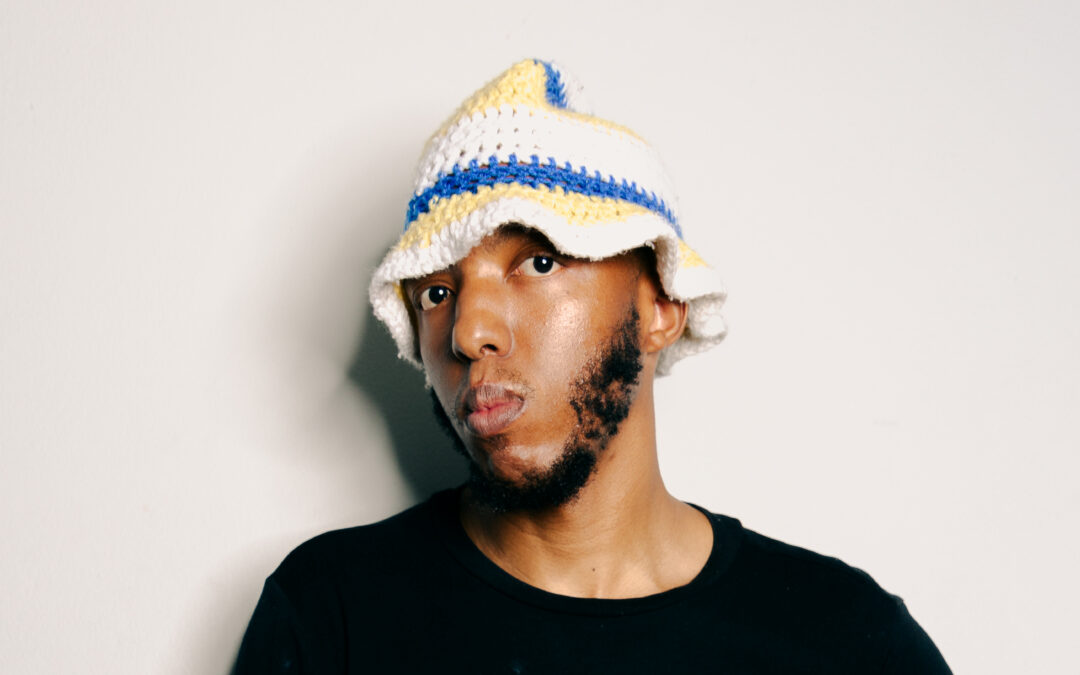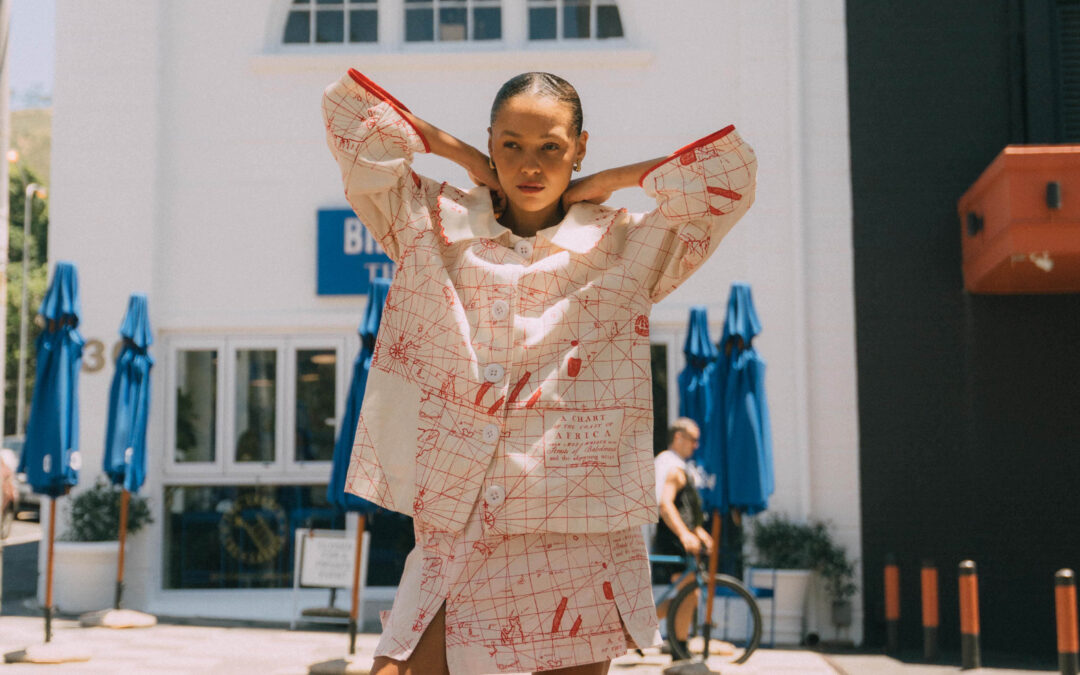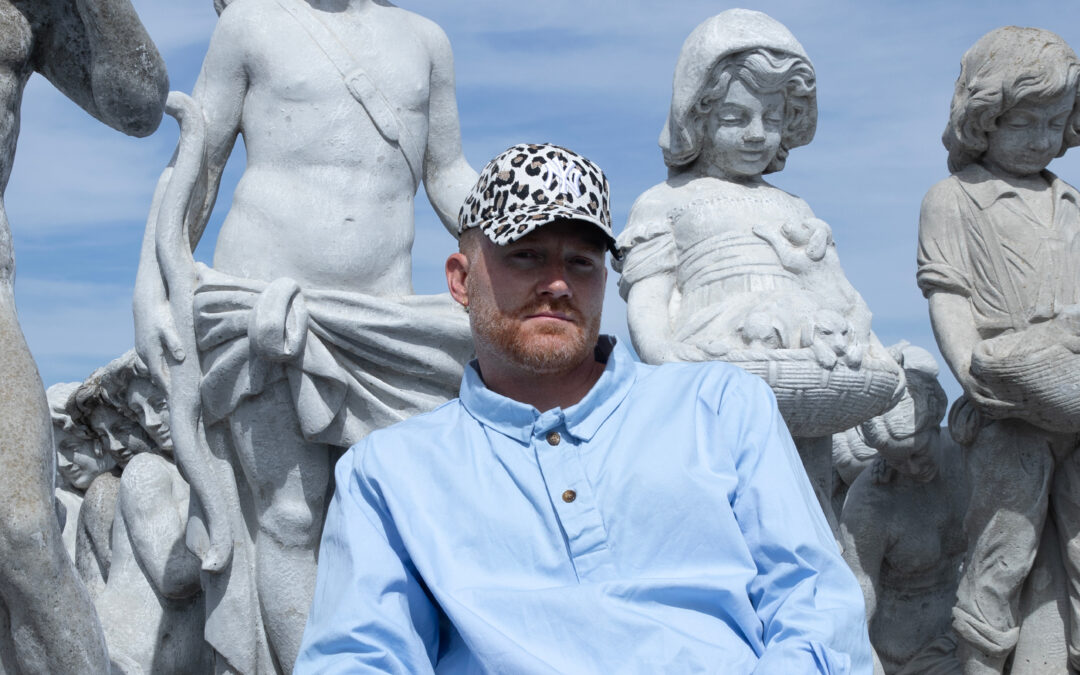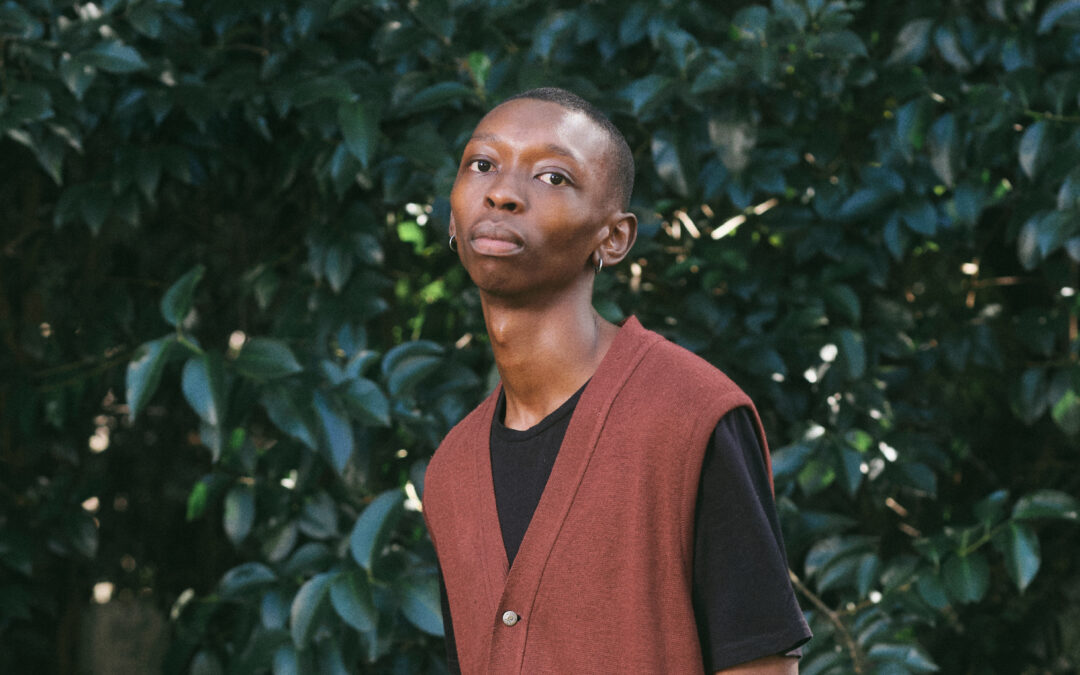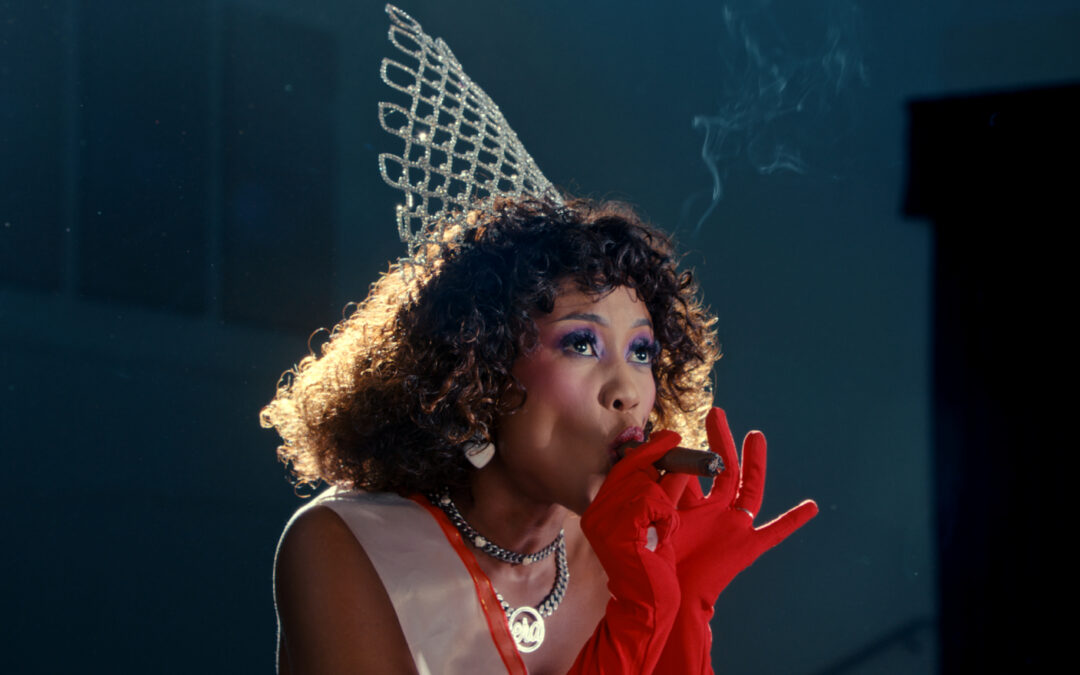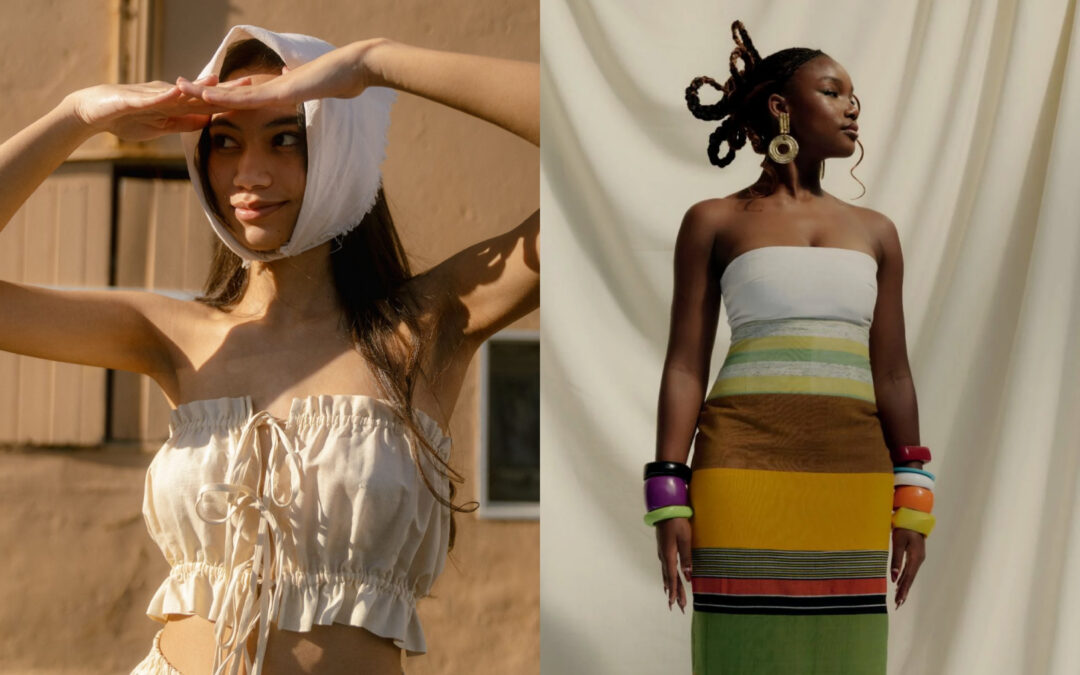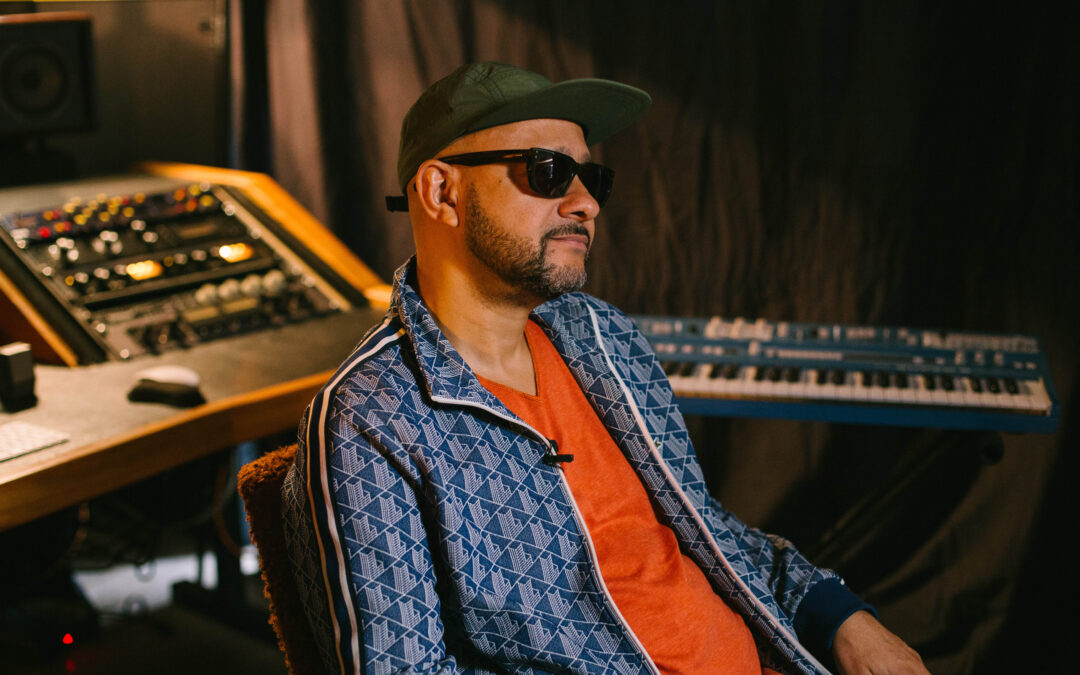The age-old adage “necessity is the mother of invention” never rings more true than when we cast our eyes across the continent. African designers face the tall order and defining task of pursuing their artistic visions against the odds—limited resources, infrastructural constraints, and global underrepresentation. There are ways of creating that necessitate invention, and Ras Maurice’s Kigali-born brand, Bone Koboyi, is no exception.
Founded in 2020 during the initiatory rite of the pandemic—a time when many creatives took the plunge to pursue their dreams—Ras began seriously translating his technical skill, learned through the tutelage of an elder tailor in his neighbourhood, into the foundation of the brand. As he explains, Bone Koboyi is a vessel, and Ras is a multidisciplinary artist whose collections always gesture toward a broader, mixed-media world.
“Bone Koboyi is my mission,” he notes. “I want to show that we can make something from nothing, that we can use our own hands, our own stories. The dream is to take what people call waste and turn it into a new kind of future. To prove that Kigali can speak fashion just as loud as anywhere else in the world.”
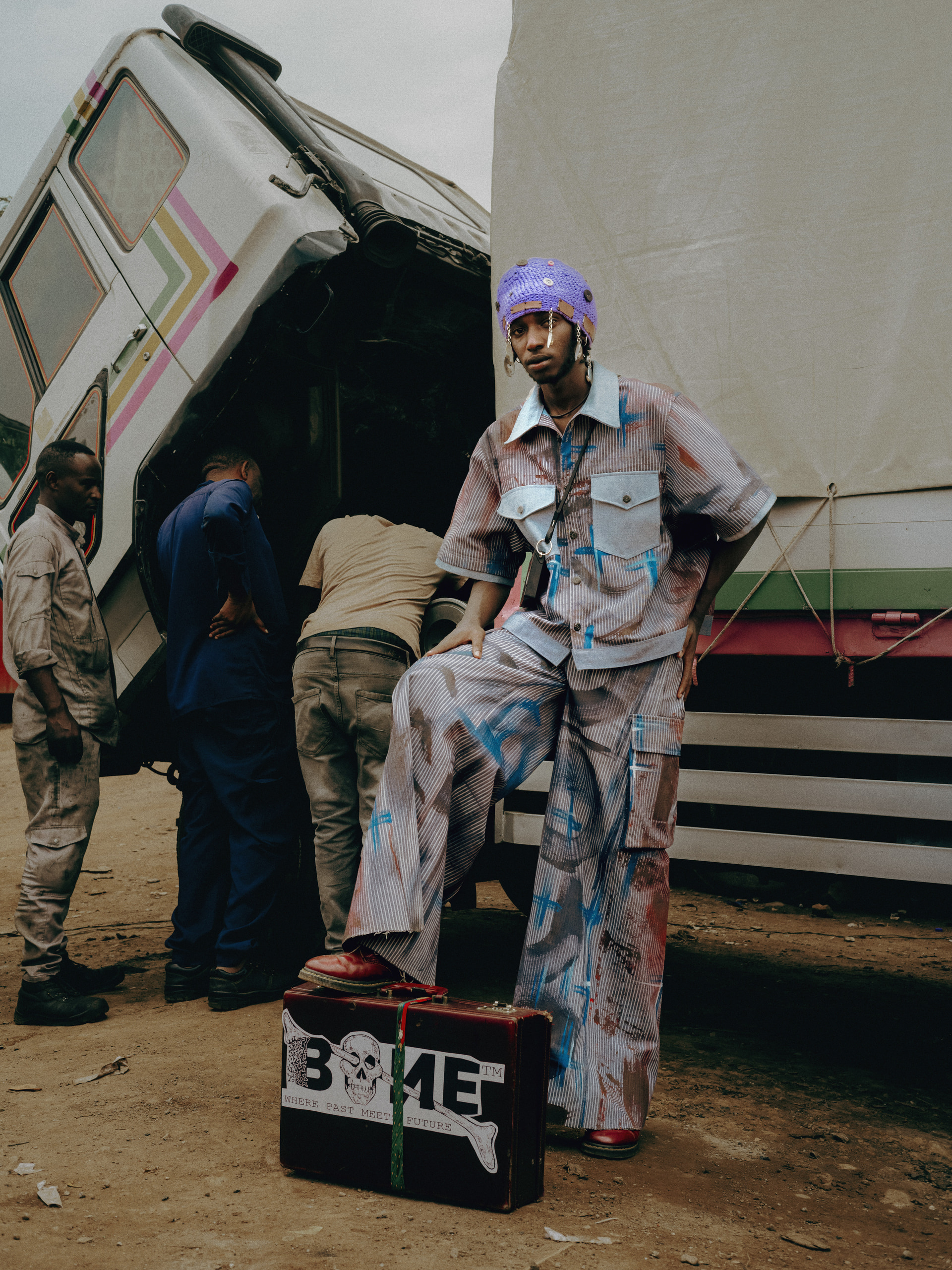
Imagery courtesy of Bone Koboyi, Photography by Umberto Santoro
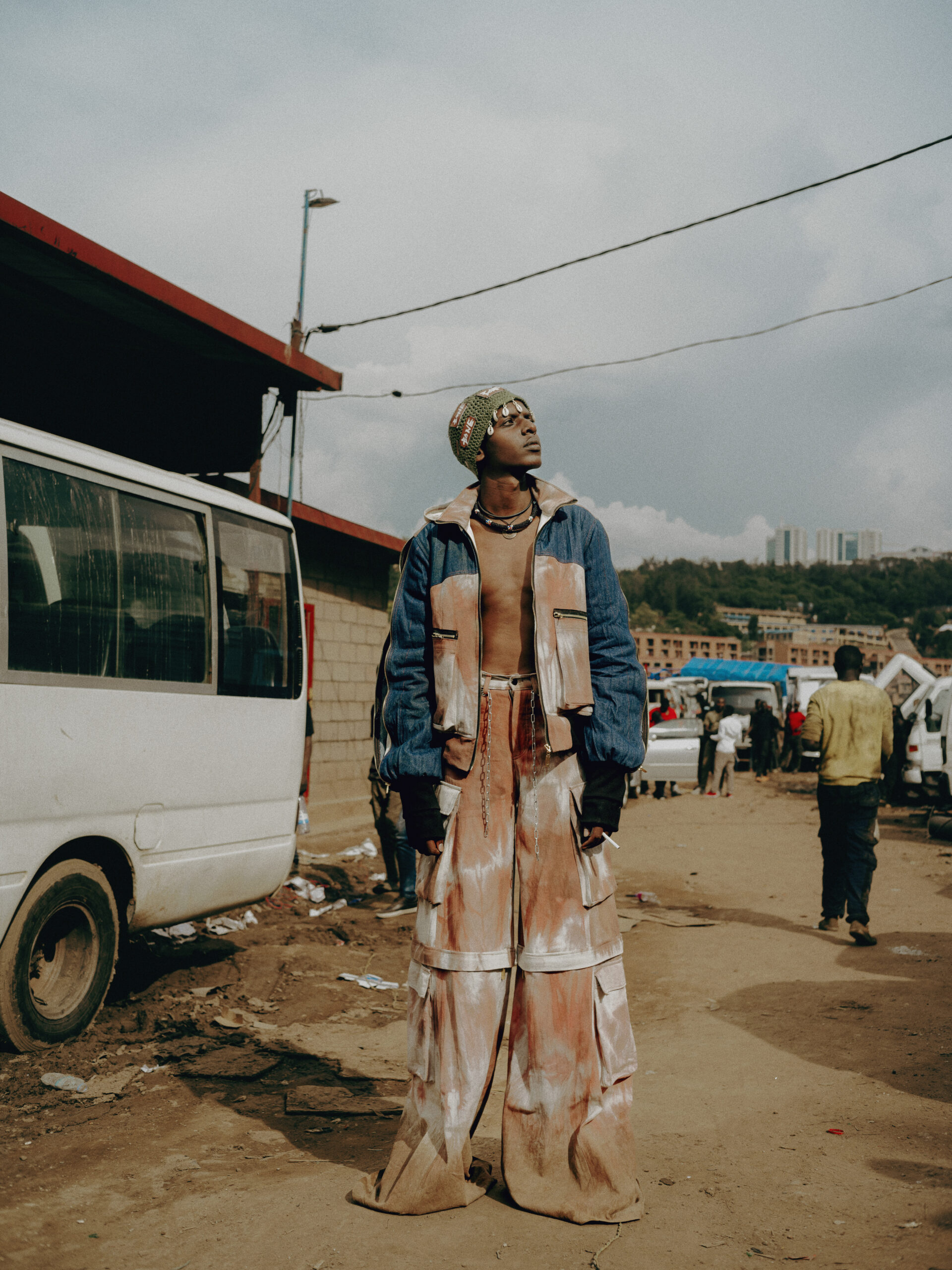
Ras explains that the idea of upcycling, though now a flex worldwide, was his only option to create. “I started making clothes using what I had — my dad’s old shirts, my mom’s dresses, even my own worn T-shirts. That was in 2018, just after high school. There was a grandpa in my hood who made suits, and he is the one who taught me how to sew. We worked from a small space, mostly tailoring suits for other people, but every evening I would collect the leftover fabric and use it to create my own designs.” He shares that in Kigali, access to fabrics, trims, and capital can be limited, though Ras didn’t wait for perfect conditions—instead, his creativity became the only condition. Upcycling is his refusal to let material scarcity dictate his imaginative reach, and what began as a means of expression through necessity soon developed into a signature approach: turning fragments of the past into wild, forward-facing silhouettes. Bone Koboyi’s aesthetic is rooted in this resourcefulness, with each garment telling a story of reinvention and movement.
Kigali as a city is a living palimpsest, with Rwanda’s painful history in the 1990s, and its colonial history prior, to reforming as a layered imprint to build upon. Today, the city is buzzing with ambition, orderly and visionary, as it nurtures a new generation of creatives who carry both memory and momentum in their work. “We’re still preaching, you know? It’s like being a pastor — telling people this is streetwear, this is art, this is ours,” Ras explains, on building a contemporary creative movement in his country, “a lot of people here still don’t fully understand what we’re doing or what streetwear even means. But slowly, they’re getting it. When they see a finished piece, they’re always shocked. They ask, ‘You made this?’ And I tell them yes, my clothes from recycled fabric, from what was thrown away. We’re showing people in Rwanda that this too is fashion, this too is valid, and it comes from here.” Africa’s creative youth face an interesting challenge, in that there is a tension between our view of the world outside the continent, and yet a profound knowing of the ingenuity rooted here. Still, the need to decentralise ourselves and others from Western hegemony—or the inherited gaze that often defines value through Eurocentric standards—is a long-term, generational unlearning.
Aesthetically, Bone Koboyi is a wonderland of fabrication, silhouette, and deep, deep coolness as a guiding sensibility. With tie-dye and painting, indigenous fabrics, and upcycling, the brand is experimental and unmistakably rooted.
On his start, Ras explains that, “In 2021, I had about 20 garments that I’d made from leftover fabrics, and I wanted to do something different — to introduce my vision through film. So I shot my first fashion film, Step — or Inambe in Kinyarwanda — because it was my first real step. I directed and styled it myself, just trying to tell a story visually about who we are. Then in 2023, that same film got selected for Fashion Clash Festival in the Netherlands and ranked in the top five fashion films. That moment was big for me — to go from my hood, from making clothes late at night in someone else’s workshop, to an international stage. It gave me the courage to keep building.”
With experience as an assistant designer at Rwanda’s most notable luxury fashion house, MOSHIONS, Ras describes the opportunity as formative: “That space meant a lot. It was where I was working with other creatives too, we shared a studio and a vision for Rwandan design.” Now, as Bone Koboyi evolves, Ras is in search of a new home for the brand, one that holds space for collaboration and cultural expression. “People suggest putting my clothes in boutiques,” he says, “but I always tell them — they don’t really understand what I’m doing. What I’m creating is art and culture, and a different frequency.”
The question of commercial viability is fashion’s biggest hurdle around the world — often the very reason investors tend to shy away from London Fashion Week’s most radical and iconoclastic talent, as an example, as creativity without compromise rarely fits into clean margins or retail rack systems; especially when it challenges the dominant narratives around value and ownership. Still, it is worth the fight: as I’ve often said, the beauty in the infancy of our local fashion industries is the flexibility to map out our own terms.
Ras’ latest collection is titled Exodus, and it’s his most personal yet. Shot by Umberto Santoro in the streets of Kigali, the collection is weighted by the search for belonging. There’s an intensity to the garments — a spiritual depth and presence that feels both ancestral and futuristic. “I started working on Exodus in 2023, but really, it’s been building for years,” Ras explains, “this collection is something deeper — it’s research, painting, storytelling, emotion. I hand-painted some of the fabrics because I needed my own marks, my own energy, inside the clothes. Every piece has a kind of memory embedded in it. I’ve worked on other collections before, but Exodus is my most spiritual and powerful one so far.”
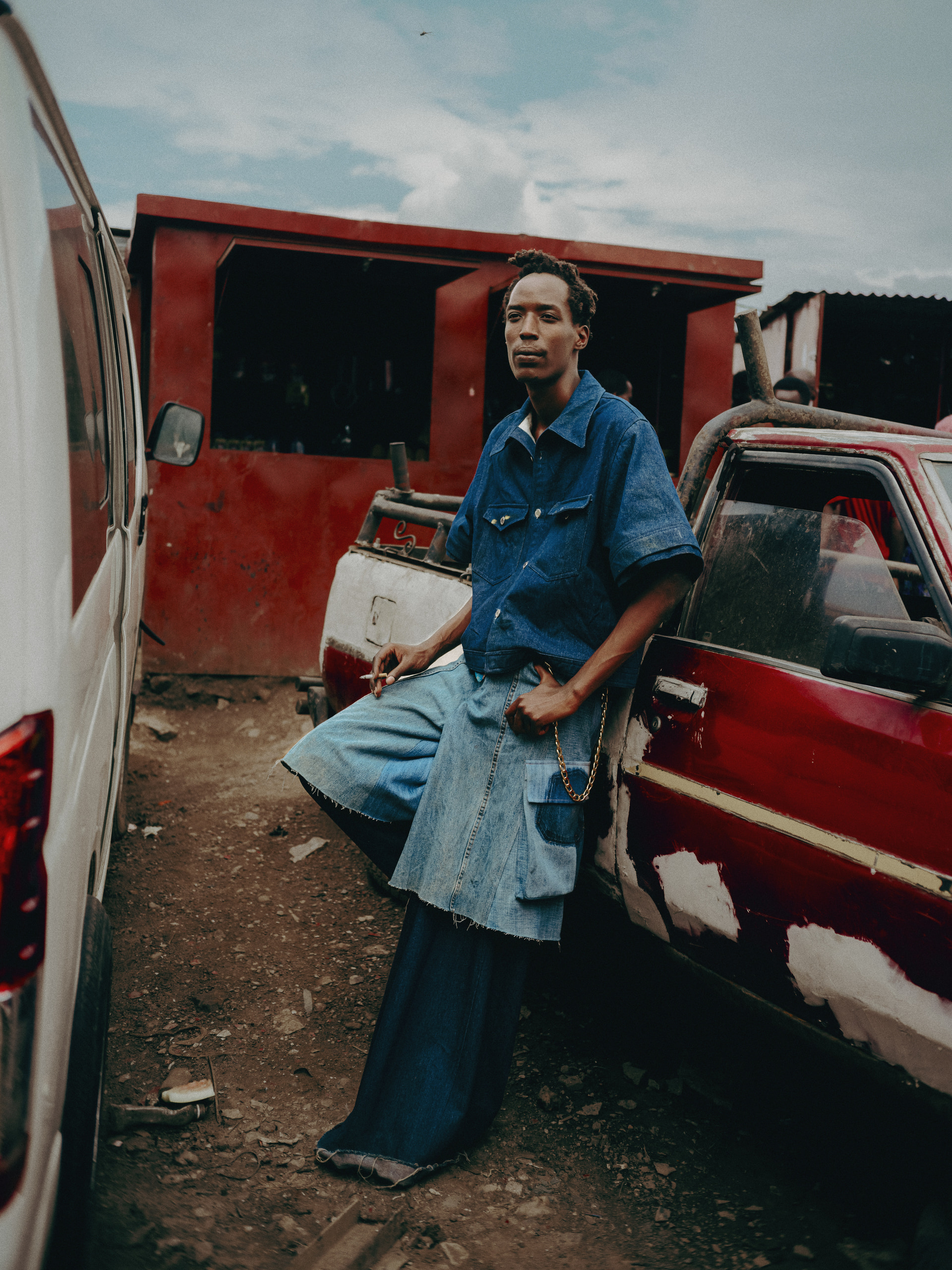
Imagery courtesy of Bone Koboyi, Photography by Umberto Santoro
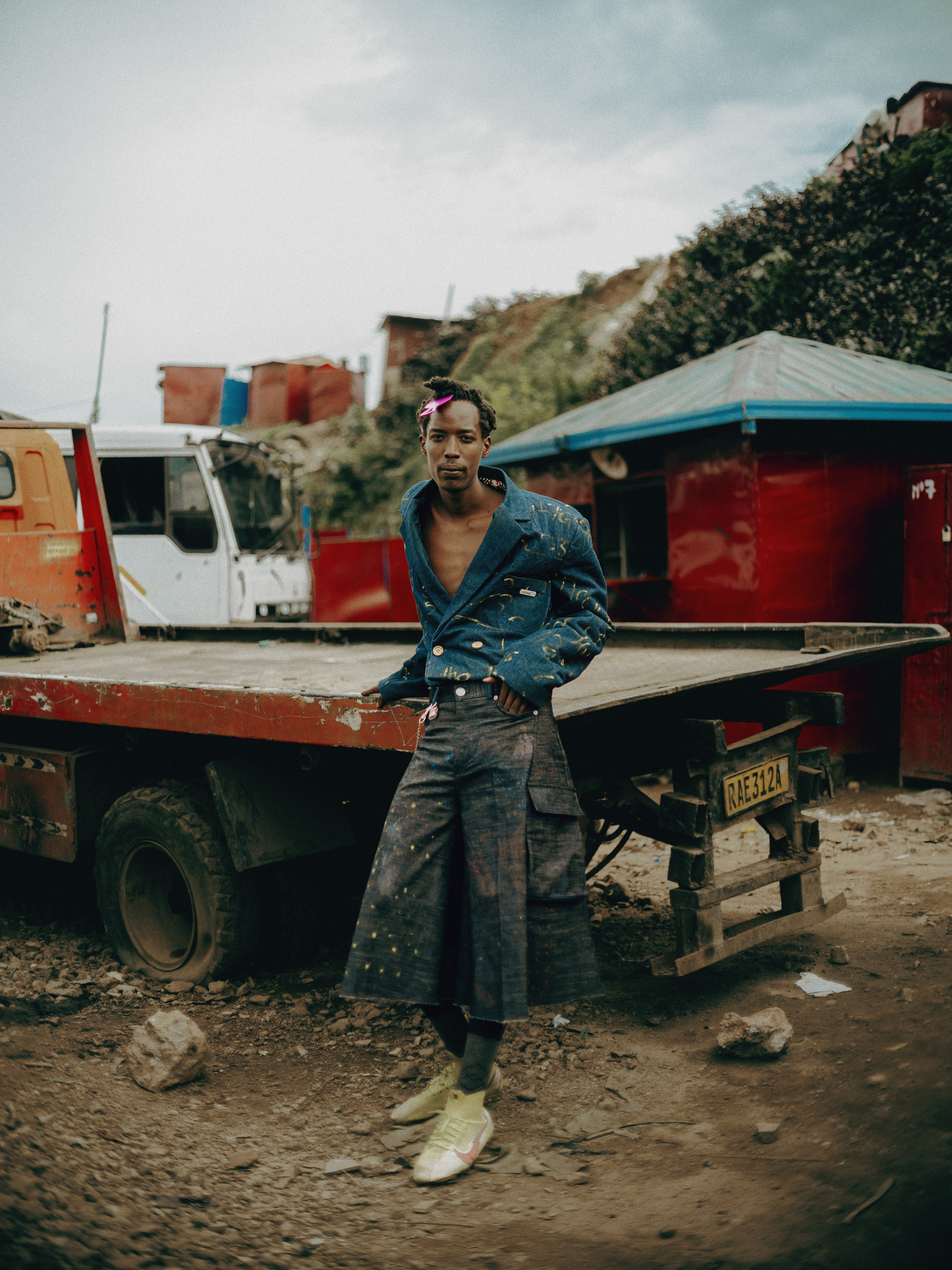
Ras tells me that fashion is growing in Kigali and in East Africa. He showed at Nairobi Fashion Week in January, and the response was everything he had hoped for. “Bone Koboyi is for all of us. It’s the community, the continent — it’s Africa. It’s something that’s growing every day. We’re making clothes, we’re telling stories, building the lifestyles we always wanted. When people wear our work, I want them to feel that; to feel like they’re wearing something powerful, something that carries love, energy, struggle, and hope.”
There’s something undeniably sacred about the way Ras approaches his work, as a conduit for collective spirit. “I do almost 80% of the work myself — research, sketching, pattern manipulation, sewing. But I also work with tailors and other artists, because when we create something, I can include the spirit of them within the brand too.” In a world obsessed with individuality, Bone Koboyi stands apart by honouring collaboration as a kind of communion. “Every piece carries many people’s love, smile, and energy. That’s why it feels alive and that’s why it moves people. You can feel the power when you touch it.” Shot among the unfiltered rhythms of Kigali life, Exodus is an ongoing artefact — a collection breathing with the spirit of place and intention.
Ras doesn’t shy away from the vulnerability it takes to stay true to one’s vision, especially in a market that often misunderstands experimentation. “It’s risky, you know, to just keep creating from your vision — especially here. Sometimes you feel like maybe you should just make what the market wants, just to survive.” Instead of compromise, Ras chooses courage, as he notes that “I want to build a safe space through my clothes, something you can wear and feel protected, seen, loved.” In a time when so much fashion feels hollow or performative, Bone Koboyi reminds us of what it means to create from the soul: unwaveringly so.
May the world return this blessing to him, tenfold.
Written by Holly Beaton
For more news, visit the Connect Everything Collective homepage www.ceconline.co.za

